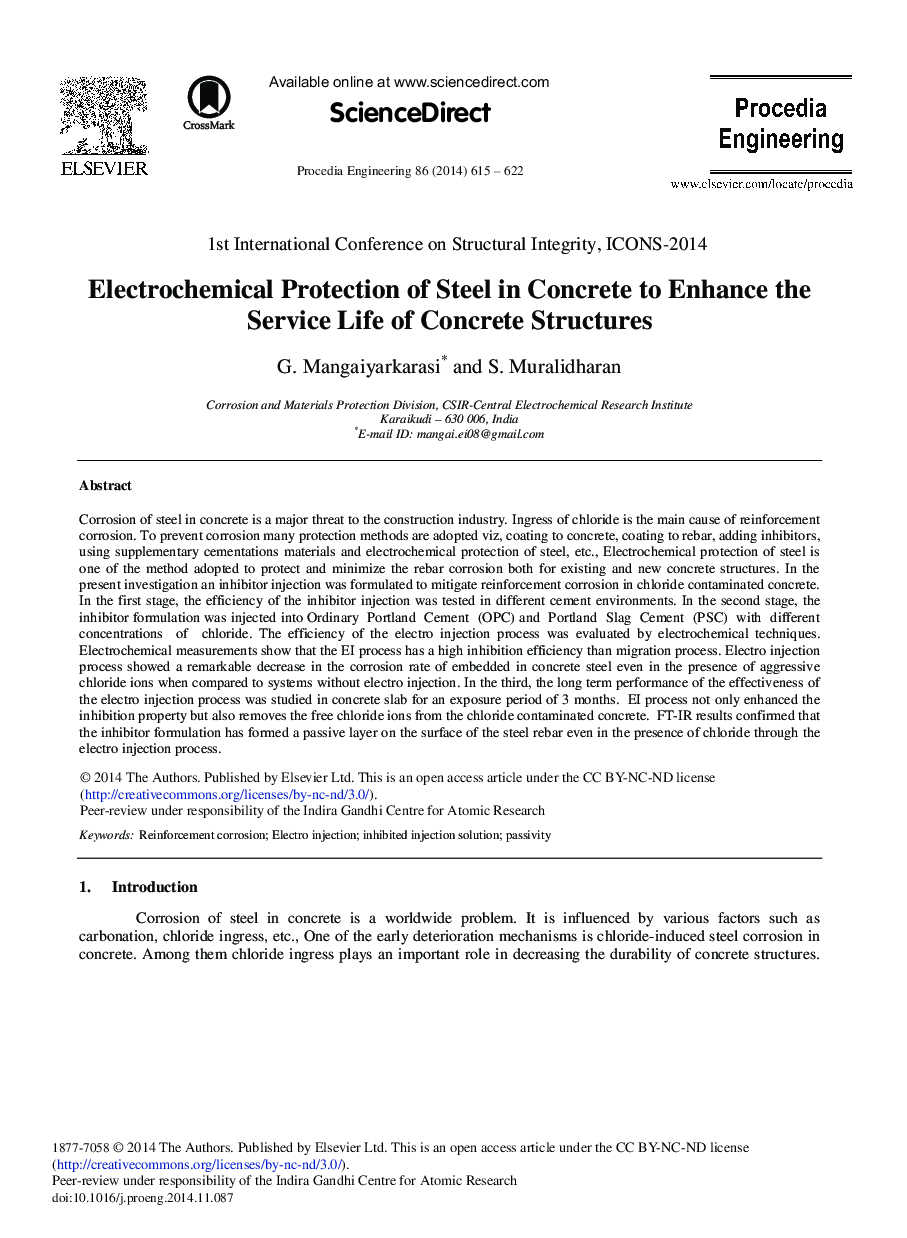| Article ID | Journal | Published Year | Pages | File Type |
|---|---|---|---|---|
| 857784 | Procedia Engineering | 2014 | 8 Pages |
Corrosion of steel in concrete is a major threat to the construction industry. Ingress of chloride is the main cause of reinforcement corrosion. To prevent corrosion many protection methods are adopted viz, coating to concrete, coating to rebar, adding inhibitors, using supplementary cementations materials and electrochemical protection of steel, etc., Electrochemical protection of steel is one of the method adopted to protect and minimize the rebar corrosion both for existing and new concrete structures. In the present investigation an inhibitor injection was formulated to mitigate reinforcement corrosion in chloride contaminated concrete. In the first stage, the efficiency of the inhibitor injection was tested in different cement environments. In the second stage, the inhibitor formulation was injected into Ordinary Portland Cement (OPC) and Portland Slag Cement (PSC) with different concentrations of chloride. The efficiency of the electro injection process was evaluated by electrochemical techniques. Electrochemical measurements show that the EI process has a high inhibition efficiency than migration process. Electro injection process showed a remarkable decrease in the corrosion rate of embedded in concrete steel even in the presence of aggressive chloride ions when compared to systems without electro injection. In the third, the long term performance of the effectiveness of the electro injection process was studied in concrete slab for an exposure period of 3 months. EI process not only enhanced the inhibition property but also removes the free chloride ions from the chloride contaminated concrete. FT-IR results confirmed that the inhibitor formulation has formed a passive layer on the surface of the steel rebar even in the presence of chloride through the electro injection process.
